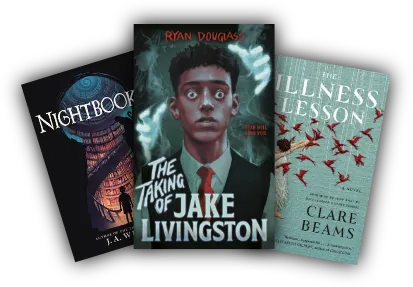How Much Does It Cost to Write a Book in South Africa?

Writing a book is a journey filled with passion, creativity, and commitment. For aspiring authors in South Africa, the question “How much does it cost to write a book?” goes far beyond monetary terms. While finances do play a role, the true investment lies in your time, your voice, your network, and your understanding of the publishing landscape.
In this guide, we explore the true meaning behind the cost of writing a book in South Africa—delving into the challenges, creative decisions, publishing options, and the resources every writer must consider when embarking on the path to authorship.
Table of Contents
ToggleWhat Does It Really Mean to “Write a Book”?
Writing a book isn’t simply sitting at a desk and typing for hours on end. It involves a combination of strategic planning, emotional investment, and continuous learning. For many South African writers, the process is as much about identity and storytelling as it is about publishing a product.
Storytelling as a Cultural Act
South Africa is a nation rich in oral tradition, diverse languages, and layered histories. Writing a book here often means translating deeply personal or communal narratives into a written form. Whether you’re crafting fiction, memoir, poetry, or non-fiction, your book becomes a contribution to the country’s literary and cultural landscape.
Time, Discipline, and Mental Energy
Perhaps the most underrated “cost” of writing a book is the sheer time and energy it requires.
The Discipline Behind the Dream
Completing a manuscript demands consistent effort. Writers in South Africa—many of whom balance full-time jobs or family responsibilities—must find creative ways to schedule writing time. Whether you wake up at 5 a.m. to write before work or spend late nights with a journal, the emotional and mental toll is real.
Overcoming Creative Blocks
Like writers everywhere, South African authors often deal with:
-
Writer’s block
-
Impostor syndrome
-
Lack of motivation or fear of judgment
The solution? Building peer support, joining local writing communities, and following structured writing plans to stay on track.
Understanding the South African Publishing Landscape
Many first-time authors ask: Should I self-publish or approach a traditional publisher? Both paths are viable in South Africa, but they offer different experiences.
Traditional Publishing in South Africa
South Africa has a number of established publishing houses such as:
-
NB Publishers
-
Jonathan Ball Publishers
-
Kwela Books
-
Penguin Random House South Africa
Traditional publishers typically accept unsolicited manuscripts, especially in local languages and niche genres. However, the process can be highly competitive and may take several months or years for acceptance.
The Rise of Self-Publishing
Self-publishing is growing in popularity in South Africa. It offers creative control, faster timelines, and broader accessibility. Platforms like Amazon KDP, IngramSpark, and even local indie publishers allow South African writers to publish on their own terms.
Note: While self-publishing offers freedom, it also requires authors to wear multiple hats: writer, marketer, designer, and distributor.
Support Systems for South African Authors
While writing can be solitary, many local resources help writers grow their craft and build visibility.
Writing Communities and Workshops
South Africa has vibrant writing communities such as:
-
Johannesburg and Cape Town Writers’ Circles
-
Poetry Africa
-
National Arts Festival Writing Programs
-
Online forums and Facebook groups for South African writers
These networks offer feedback, encouragement, accountability, and industry connections.
Literary Awards and Grants
Recognition from organizations like the Sunday Times Literary Awards, Dinaane Debut Fiction Award, and Nal’ibali can elevate your career. Various NGOs and foundations also provide grants and mentorships, especially for marginalized voices.
Language, Identity, and Voice
One of the most powerful aspects of writing in South Africa is the multilingual reality of the nation. Authors write in English, Afrikaans, isiXhosa, isiZulu, and many other languages.
Writing in Your Mother Tongue
Writing in your native language can offer authenticity and cultural depth. While it may present distribution challenges, it also strengthens local readership and preserves linguistic heritage.
Code-Switching and Hybridity
Many South African books blend languages, dialects, and cultural references—a reflection of real-life speech. This fluid style is celebrated and opens the door to unique literary innovation.
Building an Author Platform
Writing the book is only half the journey. The next step is connecting it to the right readers.
Marketing for South African Authors
Authors today need to build a personal brand. This includes:
-
Maintaining social media accounts
-
Creating author websites
-
Engaging with book bloggers and influencers
-
Participating in local book festivals and panels
Community Engagement
In South Africa, word-of-mouth and community influence are powerful. Organize local book launches, collaborate with schools, or host writing workshops to grow your visibility.
Writing a Book as a Legacy
In the end, the true value of writing a book lies not in its monetary cost, but in its emotional and intellectual legacy.
-
You preserve your voice for future generations.
-
You influence culture and challenge norms.
-
You inspire others who see themselves in your story.
Especially in a country as socially complex and historically rich as South Africa, writing a book is an act of courage, resistance, and creation.
Final Thoughts
So, how much does it really cost to write a book in South Africa?
It costs your time, your honesty, your perseverance, and your willingness to learn. It demands navigating publishing decisions, confronting personal doubts, and building your voice. But in return, it gives you authorship—a timeless title that no one can take away.
If you’re ready to begin, South Africa is full of communities, tools, and opportunities to support your journey. And while you may one day count sales and reviews, the real value of your book will always be the impact it has on someone else’s life.

